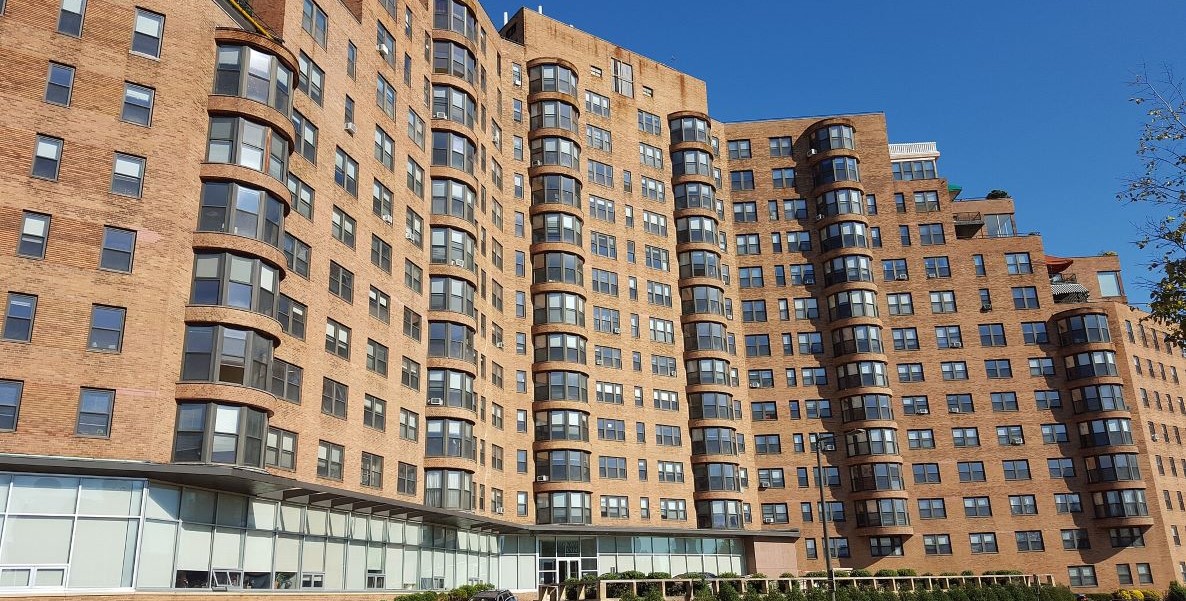America’s rental market has changed in many ways. Over the last 30 years, we’ve seen an increase in the number of landlords. We now have different types of landlords: larger landlords, corporate landlords, and laptop landlords. What was formerly a parochial, local operation has changed into a more professionalized, technology-driven business model.
These multitudinous changes have coincided with each other, such that people often talk about corporate landlords and institutional investors as one-and-the-same. Yet these interrelated changes are distinct, and require us to disentangle them to understand why they pose a problem for America’s renters and America’s cities.
Today, the median renter household is cost-burdened, meaning that they pay more than 30 percent of their monthly income in rent. While we think of America as a nation of homeowners, one in three U.S. households rent. A majority of Black and Latino households rent. Most low-income households rent. Most center cities are primarily composed of renter households.
Cities, states, and the federal government need to fundamentally expand and rethink the best approach to create a fairer, more just rental housing market.
It is imperative to address challenges in the rental housing market, such that renters can also save money and build wealth. Today, we write about the changes to the housing market, the problems that these changes have created, and the need for a new set of responses at the state, local, and federal levels.
Cities and states have begun to respond. Rent stabilization measures have passed in Oregon, California, Saint Paul, MN, and Montgomery County, MD, among others. Philadelphia, Oakland, and Baltimore have all recently passed some form of “just cause” eviction. Cincinnati, OH is suing one of their worst institutional landlords, and the Port of Cincinnati purchased a portfolio of 194 homes last year.
Yet cities, states, and the federal government need to fundamentally expand and rethink the best approach to create a fairer, more just rental housing market. That’s why we’re continuing our call for a National Commission on solving the US Housing Crisis, as we outlined earlier this year.
Changes to the rental housing market
Rental markets over the last 30 years have changed in three fundamental ways: first, the rise of the corporate landlord; second, the rise of the institutional investor; and third, the expansion of technology in the residential real estate sector. These changes are interrelated: institutional investors are also “corporate landlords,” and use technology. But these changes are distinct in other ways, and treating them as one-and-the-same obscures fundamental shifts that need to be addressed at the root level.
In 1991, individuals owned 92 percent of the nation’s rental properties. In 2021, that number had dropped to 69 percent. What happened to the 23 percent of rental properties that “left” individual hands? While it is likely that some of those properties were purchased by large entities, like private equity firms or Real Estate Investment Trusts (REITs), there is another story at play here too. The 1990s brought with it the rise of the Limited Liability Corporation, or LLC. State laws passed throughout the decade made creating a corporation cheaper and easier than ever before.
Because of these changes, many landlords now opt to incorporate as LLCs, even when they remain “sole proprietors” and even when they remain small. For example, in Ben’s research looking at ownership concentration in rental markets, he found that 78 percent of corporate landlords who own rental properties in DC are “small” landlords — meaning they own between one and five units in the city. The fundamental challenge with corporate landlords is ownership obscurity. Absent state laws that disclose beneficial owners for LLCs, or local rental registries that require similar disclosures, renters and local governments are left wondering who owns “123 Main Street LLC.”
Institutional investors and tech on the rise
The second fundamental change in the last 30 years is the rise of institutional investors in the rental housing market. Institutional investors is a poorly defined term, but they include private equity firms, pension funds, and other large landlords who control thousands or tens of thousands of rental units. Following the Great Recession, private equity firms like Blackstone entered the single-family rental market. While large institutional investors remain small players nationally — they own only between one-to-two percent of single-family rentals nationwide — they have concentrated their holdings in certain neighborhoods and certain metro areas.
Excellent reporting from Phoenix, Atlanta, and other sunbelt metros have highlighted the explosive growth of institutional investors in these metros, with some neighborhoods seeing a majority of their homes owned by just a few landlords. There is a new “build to rent” model where suburban subdivisions are built not to be sold to homeowners, but to be sold en masse to large landlords. Multifamily landlords have also gotten bigger: in 1992, the 50 largest owners of multifamily rental properties owned 1.6 million rental units. Today, that number has increased by more than 50 percent, to nearly 2.5 million units.
A nation where 50 percent of renters are cost burdened is a nation where half of renters can’t get ahead, can’t save for an emergency, or a down payment, or to go to college.
Third is the rise of technology, and the way that technology has enabled a new modus operandi for landlords. The “Laptop Landlord” can identify, acquire, and manage property from afar. Enabled by websites like Zillow, Redfin, and Craigslist, potential landlords no longer need to be local to find and buy properties. Numerous technology firms have stepped into the game: Evernest and Darwin help potential real estate investors buy properties, and then offers to manage it for them. Crowdsourcing platforms like Fundrise and Arrived tout the benefit of real estate investing for everyone.
Companies like Lessen and Belong provide technology-forward rental management, offering to “make your home Instagrammable” while also vetting potential tenants. Larger landlords now use technology to set and raise rents, with RealPage suggesting double-digit rent increases. Algorithms determine how much to raise rent, and black-box “rental screening” software determines who can rent a unit. Technology has permeated residential rental real estate, making it more accessible to potential real estate investors, and more precarious for renters.
Why this is a problem
Nationwide, and adjusted for inflation, median gross rent has increased 21 percent between 2000 and 2021, while renters’ incomes have been essentially stagnant, having increased 0.4 percent. This divergence is unsustainable. Efforts must be made to control the rising cost of renting in the United States today. A nation where 50 percent of renters are cost burdened is a nation where half of renters can’t get ahead, can’t save for an emergency, or a down payment, or to go to college. Rising costs spell disaster for millions of America’s renters.
Furthermore, research has shown us that corporate landlords, large landlords, and technology-enabled landlords are, oftentimes, worse landlords. Corporate landlords have higher rates of code violations. Larger landlords evict more aggressively, treating the eviction process as part of a “fines and fees” income stream. In neighborhoods where landlords have concentrated holdings, rents are higher. More activity from small- and medium-sized landlords have been found to be associated with higher rent and home price increases.
More research is needed to better understand the effects of technology, and to further disentangle these complementary changes. But the alarm bells are clear: America’s rental housing market has become a site of expansive investor interest.
Part of the cause driving these effects is the scarcity of rental housing, making it an attractive asset class to investors. Yet it is also an attractive asset class because, nationwide, the rental market is largely unregulated and opaque:
- In states like Oklahoma and North Carolina, it is illegal for local governments to establish a rental registry, making it more difficult to identify who owns what rental properties. Places that have rental registries are often under-enforcing them. If you want to identify rental properties and bad landlords: good luck, you’re on your own.
- In Georgia, an eviction can be filed and executed for a mere $181, compared to $500+ in Massachusetts. Lower eviction fees make evictions attractive to landlords who use “serial filing” to make additional profit form tenants.
- How much is rent? Ask Zillow, a private company, which provides a black-box estimate of rent at the ZIP code — but only for some 20 percent of ZIP codes. Or you could wait for the American Community Survey, which will let you know the average rent over the last five years, but two years too late.
The need for a national response
Given the rapid changes to the rental housing market over the last three decades, but especially the last three years, the time is now to invest in local governmental capacity to monitor, intervene in, and support the rental housing market at the local level. We need an across-the-board evaluation of strategies that nonprofits, local governments, state governments, and the federal government can take to rein in rental housing costs and make the experience of renting fairer and more equitable.
That’s why we’re calling for the creation of A National Commission on Solving the U.S. Housing Crisis. The work of the commission will be a full-scale assessment of the challenges facing the housing market in America today, and to provide a solutions bank and suite of recommendations that local practitioners can implement.
In the meantime, local governments can enact local rental registries, just cause eviction, and rent stabilization to try and grapple with a rapidly changing rental market. States can bring greater transparency to LLCs, uncovering the human owners behind the corporate landlords. Both states and localities can work together to enact land use and building code reform, enabling greater construction of rental units. Alternative models of owning and renting, such as Community Land Trusts and Mixed Income Neighborhood Trusts can be implemented nationwide.
The federal government can continue to pursue reforms and provide funding to states and localities to lower housing costs, boost supply, and protect renters. New models of financing large scale acquisition of single-family rentals by public and nonprofits can be authorized and perfected, just as the market for syndicating tax advantaged capital was pioneered decades ago.
As state and local innovative practices emerge, the federal government can also act as an objective clearinghouse, codifying and communicating innovations in a structured way so that they are more likely to be adapted across the country.
The U.S. rental market is structurally changing at a scale and speed that challenges the ability of federal, state, and local governments to respond. The country needs a systematic review and accounting of what this means so that the next generation of housing policies can be invented and scaled in real time and protect renters from excessive costs and burdens.
Bruce Katz is the Founding Director of the Nowak Metro Finance Lab at Drexel University. Ben Preis is a Research Fellow with the Nowak Lab.
![]()
MORE ON REAL ESTATE IN PHILLY AND BEYOND
Thekohser, CC BY-SA 4.0, via Wikimedia Commons




